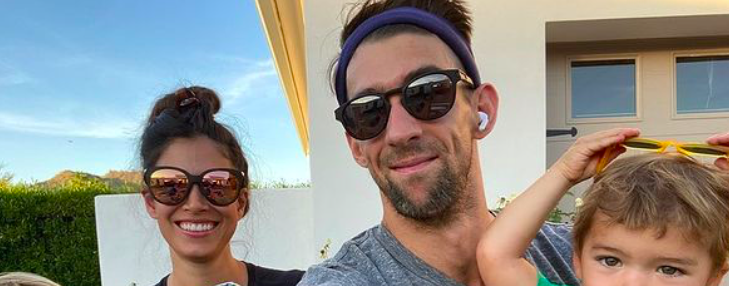Mental health is something we all should take seriously.
The pain and struggle of anxiety, depression, worry, suicidal thoughts, and other mental health conditions is real.
If you or someone you know is struggling with depression, anxiety, depression, has suicidal thoughts, is worrying, or experiencing any mental health issue symptoms, know you are not alone!
RELATED: Michael Phelps Says Pandemic ‘Is the Most Overwhelmed I’ve Ever Felt in My Life’
“Millions of people in the U.S. are affected by mental illness each year…People with depression have a 40% higher risk of developing cardiovascular and metabolic diseases than the general population. People with serious mental illness are nearly twice as likely to develop these conditions…43.8% of U.S. adults with mental illness received treatment in 2019″ according to the National Alliance on Mental Illness.
According to Mental Health America:
- Nearly 1 in 5 American adults will have a diagnosable mental health condition in any given year.
- 46 percent of Americans will meet the criteria for a diagnosable mental health condition sometime in their life, and half of those people will develop conditions by the age of 14.
Insert Michael Phelps, who seemingly recognizes this, having been open about his own mental health battles himself over the years, and wanted to end 2020 encouraging people to get help.
“It’s almost the end of what’s been a challenging year and I know so many of us have struggled with our mental health,” Phelps said in a December Instagram post. “The one thing I’ve tried to be consistent about is therapy — because it’s something that’s always worked for me.”
“If you’re one of the millions of Americans who has had a hard time like I have, @talkspace can help,” Phelps said. “They will match you with a licensed therapist who can support your specific needs, so you can begin receiving personalized support from the comfort of your phone”
Michael Phelps, instagram post
Phelps has reached the peak of his sport. Twenty-three times, in fact. But the 23-time gold medalist isn’t afraid to speak out about his struggle with depression, even to this day.
“I’ve had some scary ups and downs,” Phelps told Today Parents per Today.com in December. “Sometimes I just want to curl up into a ball in a corner. I need to be alone or I feel like I should be alone.”
Today noted that “Phelps’ depression affects his entire family, especially his wife of four years, Nicole, with whom he shares sons, Boomer…Beckett…(and) Maverick”.
According to the National Alliance on Mental Illness, “at least 8.4 million people in the U.S. provide care to an adult with a mental or emotional health issue”.
Count Michael Phelps’ wife as one of them.
“I used to think, ‘Oh, I can fix him. I can be his therapist. I can be what he needs,’” Nicole Phelps said per Today. “But what I’ve learned is that you can’t take ownership for how they’re feeling, no matter how badly you want to.”
It was especially hard for Nicole reportedly after the tragedy the Bryant’s faced in 2020.
“After Vanessa (Bryant) lost Kobe, all I could do was look at Michael and be like, ‘Can we please help you? Because if I lose you, I don’t know what I’m gonna do…Michael is the most amazing father and partner I could have ever asked for,” Nicole said to Today Parents per Today.com.
“There’s good days and there’s bad days but all days with you make me smile even when I don’t want to,” Nicole Phelps said in October 2020. “@m_phelps00 Happy 4th Anniversary
Again, if you or someone you know is struggling with depression, anxiety, depression, has suicidal thoughts, is worrying, or experiencing any mental health issue symptoms, know you are not alone!
And there are so many resources out there available to help. From utilizing what Phelps mentioned, Talkspace, to reaching out to local non-profit organizations who specialize in counseling or a local church who has counseling services to finding therapists through your insurance, when there’s a will to get better, there’s a way.
Here are some resources from the National Institute of Mental Health:
- “National Suicide Prevention Lifeline: Call 1-800-273-TALK (8255); En Español 1-888-628-9454 “The Lifeline is a free, confidential crisis hotline that is available to everyone 24 hours a day, seven days a week…These centers provide crisis counseling and mental health referrals. People who are deaf, hard of hearing, or have hearing loss can contact the Lifeline via TTY at 1-800-799-4889”
- Crisis Text Line: Text “HELLO” to 741741 “The Crisis Text hotline is available 24 hours a day, seven days a week throughout the U.S. The Crisis Text Line serves anyone, in any type of crisis, connecting them with a crisis counselor who can provide support and information”
- Veterans Crisis Line: Call 1-800-273-TALK (8255) and press 1 or text to 838255 “The Veterans Crisis Line is a free, confidential resource that connects veterans 24 hours a day, seven days a week with a trained responder”
- Disaster Distress Helpline: Call 1-800-985-5990 or text “TalkWithUs” to 66746 “The disaster distress helpline provides immediate crisis counseling for people who are experiencing emotional distress related to any natural or human-caused disaster”
“Find a Health Care Provider or Treatment” (per the National Institute of Mental Health):
“Treatment for mental illnesses usually consists of therapy, medication, or a combination of the two. Treatment can be given in person or through a phone or computer (telehealth). It can sometimes be difficult to know where to start when looking for mental health care, but there are many ways to find a provider who will meet your needs.
- Primary Care Provider: Your primary care practitioner can be an important resource, providing initial mental health screenings and referrals to mental health specialists. If you have an appointment with your primary care provider, consider bringing up your mental health concerns and asking for help.
- Federal Resources: Some federal agencies offer resources for identifying health care providers and help in finding low-cost health services.
- National Agencies and Advocacy and Professional Organizations: Advocacy and professional organizations can be a good source of information when looking for a mental health provider. They often have information on finding a mental health professional on their website, and some have practitioner locators on their websites. Examples include but are not limited to:
- Anxiety and Depression Association of America
- Depression and Bipolar Support Alliance
- Mental Health America
- National Alliance on Mental Illness“
For a detailed list of resources, you can visit the National Institute of Mental Health‘s site.
Contents

